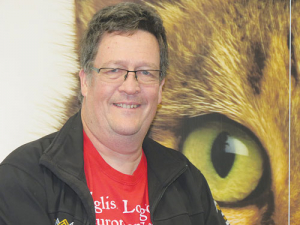The Paris-based World Animal Health Organisation, with 197 member countries, is now updating the Terrestrial Animal Health Code that sets best practice-standards worldwide.
Two of the group’s chapters are looking at the codes for slaughter and for killing animals if a major disease breaks out. NZ research on these – especially on pre-slaughter stunning is seen as world class.
One of those researchers is Johnson, hence his appointment.
“My background is in the field of electrophysiology research which measures the brainwaves of animals,” he told Rural News.
“I developed a model which allowed us to identify brain wave responses to pain in animals that were anaesthetised. This shows that while the animals can’t perceive pain because they are anesthetised, we can measure the wave forms in their brains and say that if the animals were awake they would be feeling pain because of the stimulus we have given.
“We validated that with castration, dehorning and tail docking to show they were all painful,” he explains.
Johnson says animals slaughtered without stunning would also experience pain, hence the importance of stunning prior to slaughter. It is incorrect to suggest animals do not suffer pain, he says.
NZ’s Animal Welfare Act is seen as among the world’s best, in part due to the close links between research providers and legislators.
“We are talking to each other and we get to hear what the legislators are interested in, so we get to provide research which is relevant to them,” he explains.
“They get to listen to us and we see that the research we do results in changes to the legislation in NZ, which results in changes to working practices for the benefit of the animals.”
‘Do you hold a licence for this?
As a vet and a scientist, Craig Johnson says it’s important that people in his field have a ‘societal licence’ to operate.
He believes it is important that society gets to hear about what happens in farming in a reasonable and educated way, so they can make informed decisions about that societal license.
Johnson sees his role as being an unbiased scientist, providing data people can use to make their own decisions. He says he’s not an advocate of any particular outcome or action that may result from his research.
For example, Johnson is careful not to become an advocate for any particular method of slaughter where a religion is involved.
“When I am talking in public, right at the front of my mind is, am I interpreting my data set or am I putting some bias in it? I try to restrict myself to interpreting my data; that’s the only thing that makes what I do special.”
Johnson says if he were play any sort of advocacy role in respect of his research, that would dilute his credibility.









